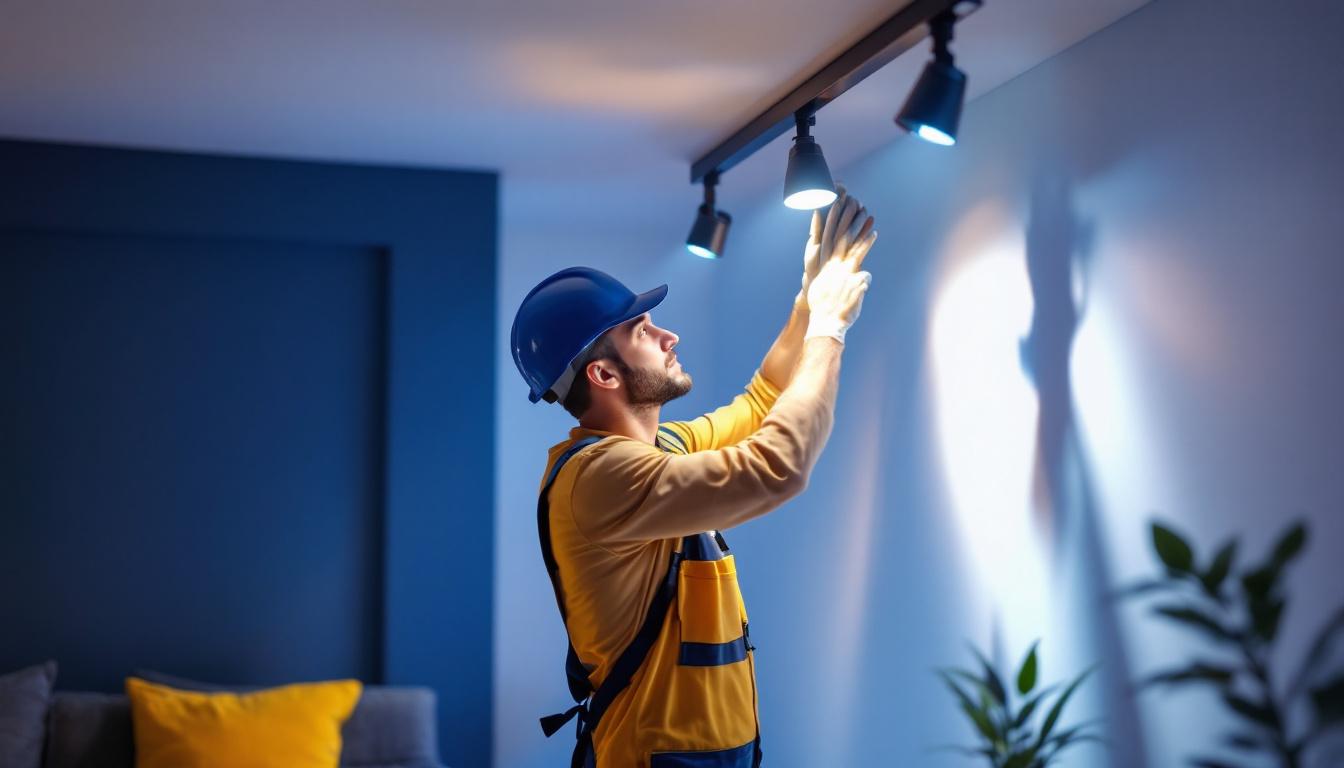
In the realm of electrical installations, lighting timers are a vital component that can enhance efficiency, convenience, and energy savings. However, even seasoned lighting contractors can make mistakes when it comes to implementing these devices. Understanding common pitfalls can help contractors avoid costly errors and ensure that their projects run smoothly. This article delves into the frequent missteps made by lighting contractors regarding light timers, providing insights and solutions to enhance their work.
Before exploring the common mistakes, it is essential to grasp what light timers are and how they function. Light timers are devices that control the on and off cycles of lighting fixtures based on pre-set schedules. They can be mechanical or digital, with varying features that cater to different needs. The primary goal of these timers is to automate lighting, thereby improving energy efficiency and providing convenience to users.
There are several types of light timers available on the market, each designed for specific applications. Mechanical timers, for instance, often feature a dial that allows users to set the on and off times manually. Digital timers, on the other hand, offer more advanced features, including programmable schedules, remote control, and even integration with smart home systems.
Understanding the differences between these types is crucial for contractors, as it informs the selection process based on the client’s needs and the specific application of the lighting system. For example, a digital timer may be more suitable for a homeowner who travels frequently, allowing them to program their lights to mimic their presence at home, whereas a mechanical timer might suffice for a simple outdoor lighting setup.
Utilizing light timers provides numerous benefits, such as energy savings, enhanced security, and improved convenience. By automating lighting schedules, homeowners and businesses can significantly reduce their energy consumption. Additionally, timers can enhance security by ensuring that lights are on during specific hours, deterring potential intruders.
Moreover, the convenience of automated lighting can improve the overall user experience, allowing clients to enjoy their spaces without worrying about manually turning lights on and off. This is particularly beneficial for individuals with mobility issues or those who have busy lifestyles. Furthermore, light timers can be programmed to adjust with the changing seasons, ensuring that outdoor lights are activated at dusk and turned off at dawn, which not only saves energy but also maintains a consistent aesthetic appeal throughout the year.
Despite the advantages of light timers, many contractors fall into common traps that can lead to inefficiencies or client dissatisfaction. Recognizing these mistakes is the first step toward avoiding them.
One of the most significant mistakes contractors make is failing to thoroughly assess the client’s needs before selecting a light timer. Each project is unique, and what works for one client may not be suitable for another. Factors such as the type of lighting, the layout of the space, and the client’s lifestyle should all be considered.
Contractors should engage in detailed discussions with clients to understand their specific requirements. This includes asking about their preferences for automation, desired schedules, and any particular features they may want. A comprehensive assessment will lead to a more tailored solution that meets client expectations. Furthermore, understanding the client’s daily routines can help in recommending timers that align with their lifestyle, such as those that can be programmed to turn on and off at specific times to enhance security or convenience.
Another common oversight is neglecting to check the compatibility of light timers with existing lighting systems. Not all timers work seamlessly with every type of lighting, especially when dealing with LED fixtures or smart home systems. This oversight can result in malfunctioning timers or, worse, damage to the lighting system.
Contractors should always verify that the selected timer is compatible with the specific types of bulbs and fixtures being used. This includes checking voltage requirements, wattage ratings, and any special features that may be necessary for optimal performance. Additionally, staying updated on the latest technologies in lighting can help contractors recommend timers that not only fit the current system but also offer future-proofing options, ensuring that clients can easily integrate new technologies as they become available.
The installation process is critical when it comes to light timers. Many contractors rush through this phase, leading to improper installations that can cause timers to malfunction. Common installation mistakes include incorrect wiring, inadequate securing of the timer, and failure to follow manufacturer instructions.
To avoid these issues, contractors should take their time during the installation process. Following a systematic approach, double-checking connections, and adhering to all guidelines provided by the manufacturer can help ensure a successful installation. Moreover, conducting a thorough post-installation test can help identify any issues before the client takes over. This not only enhances the reliability of the installation but also builds trust with the client, as they can see the contractor’s commitment to quality and detail in their work.
Once the installation is complete, many contractors fail to educate their clients on how to use the light timers effectively. This oversight can lead to frustration and dissatisfaction, as clients may struggle to operate the timers or may not understand the full range of features available to them. Without proper guidance, clients might miss out on energy-saving opportunities or fail to utilize features that could enhance their home security, such as scheduling lights to mimic occupancy when they are away.
Providing thorough training on the use of light timers is essential. Contractors should take the time to walk clients through the timer’s features, demonstrating how to set schedules, adjust settings, and troubleshoot common issues. This hands-on training can empower clients to make the most of their new lighting systems. Moreover, it can also create a sense of ownership and pride in their home automation choices, encouraging them to explore additional smart home technologies in the future.
Additionally, providing written instructions or user manuals can serve as a helpful reference for clients after the installation is complete. This attention to detail can significantly enhance client satisfaction and foster trust in the contractor’s expertise. Including FAQs or a troubleshooting guide in the manual can further assist clients in resolving minor issues independently, reducing the need for follow-up calls and reinforcing their confidence in managing their lighting systems.
Contractors should also anticipate common questions clients may have regarding light timers. Addressing these inquiries proactively can further enhance the client experience. Questions about energy savings, timer settings, and maintenance should be covered during the training session to ensure clients feel confident in using their new systems. Additionally, contractors can discuss the benefits of integrating light timers with other smart home devices, such as motion sensors or smart speakers, to create a seamless and efficient home environment.
Furthermore, it may be beneficial to offer ongoing support after the initial training session. This could include follow-up calls or emails to check in on how clients are managing their timers and whether they have any new questions. By maintaining an open line of communication, contractors can demonstrate their commitment to customer satisfaction and encourage clients to reach out for assistance whenever needed. This proactive approach not only strengthens the client-contractor relationship but also positions the contractor as a reliable resource for future projects or upgrades.
Maintenance is a crucial aspect that many contractors overlook when dealing with light timers. While these devices are generally reliable, they can encounter issues over time if not properly maintained. Ignoring maintenance can lead to premature failures, resulting in additional costs for both the contractor and the client.
Contractors should recommend regular inspections of light timers to ensure they are functioning correctly. This includes checking for any signs of wear and tear, ensuring that connections remain secure, and verifying that the timer is keeping accurate time. Regular inspections can help identify potential issues before they escalate into significant problems.
Encouraging clients to schedule periodic maintenance can also extend the lifespan of the timer and the overall lighting system, ultimately saving them money in the long run.
In addition to recommending inspections, contractors should provide clients with maintenance tips to help them care for their light timers. Simple actions, such as keeping the timer clean and ensuring it is free from dust and debris, can go a long way in maintaining optimal performance.
Educating clients on how to reset timers after power outages or how to adjust settings for seasonal changes can also enhance their experience and ensure that the lighting system continues to meet their needs.
The lighting industry is continuously evolving, with new technologies and innovations emerging regularly. Contractors who fail to stay updated on these trends may miss out on opportunities to offer clients the latest and most efficient solutions.
Smart lighting technology is one of the most significant advancements in recent years. Many modern light timers can now be integrated with smart home systems, allowing for remote control and automation through mobile apps. Contractors who do not embrace these technologies may find themselves at a disadvantage compared to competitors who do.
Staying informed about the latest trends and advancements in lighting technology can help contractors provide cutting-edge solutions to their clients. This not only enhances the contractor’s reputation but also ensures that clients receive the best possible service and products.
Contractors should actively seek out continuing education opportunities to stay informed about the latest developments in the industry. Workshops, webinars, and industry conferences can provide valuable insights into new products, technologies, and best practices.
Engaging in ongoing education not only enhances a contractor’s skill set but also demonstrates a commitment to excellence, which can significantly impact client satisfaction and loyalty.
In the world of lighting installations, avoiding common mistakes related to light timers is crucial for ensuring client satisfaction and project success. By thoroughly assessing client needs, ensuring compatibility, practicing proper installation techniques, educating clients, emphasizing maintenance, and staying updated on industry trends, contractors can significantly enhance their services.
Ultimately, the goal is to provide clients with efficient, reliable, and user-friendly lighting solutions. By recognizing and addressing these common pitfalls, lighting contractors can position themselves as trusted experts in their field, leading to long-term relationships and a thriving business.
Ready to avoid common mistakes and elevate your lighting projects? Choose LumenWholesale for your lighting timer needs and benefit from our spec-grade products at unbeatable wholesale prices. With our direct approach, you’ll enjoy superior lighting solutions without the inflated markups often found with local distributors. Our extensive selection not only meets but exceeds industry standards, ensuring you deliver reliable and high-performance lighting every time. Plus, with free shipping on bulk orders, you can stock up on quality lighting timers without the hassle of hidden fees. Make the smart choice for your business and experience the perfect blend of quality, affordability, and convenience at LumenWholesale – Wholesale Lighting at the Best Value.

Discover the ultimate antique gas street lamps lighting contractors’ checklist to ensure authentic restoration, safety, and efficiency.

Discover essential tips for updating track lighting as a lighting contractor.

Discover the essential guide for lighting contractors on selecting and installing shop exhaust fans.

Discover the benefits of using 8 ft fluorescent lights in your lighting installation projects.